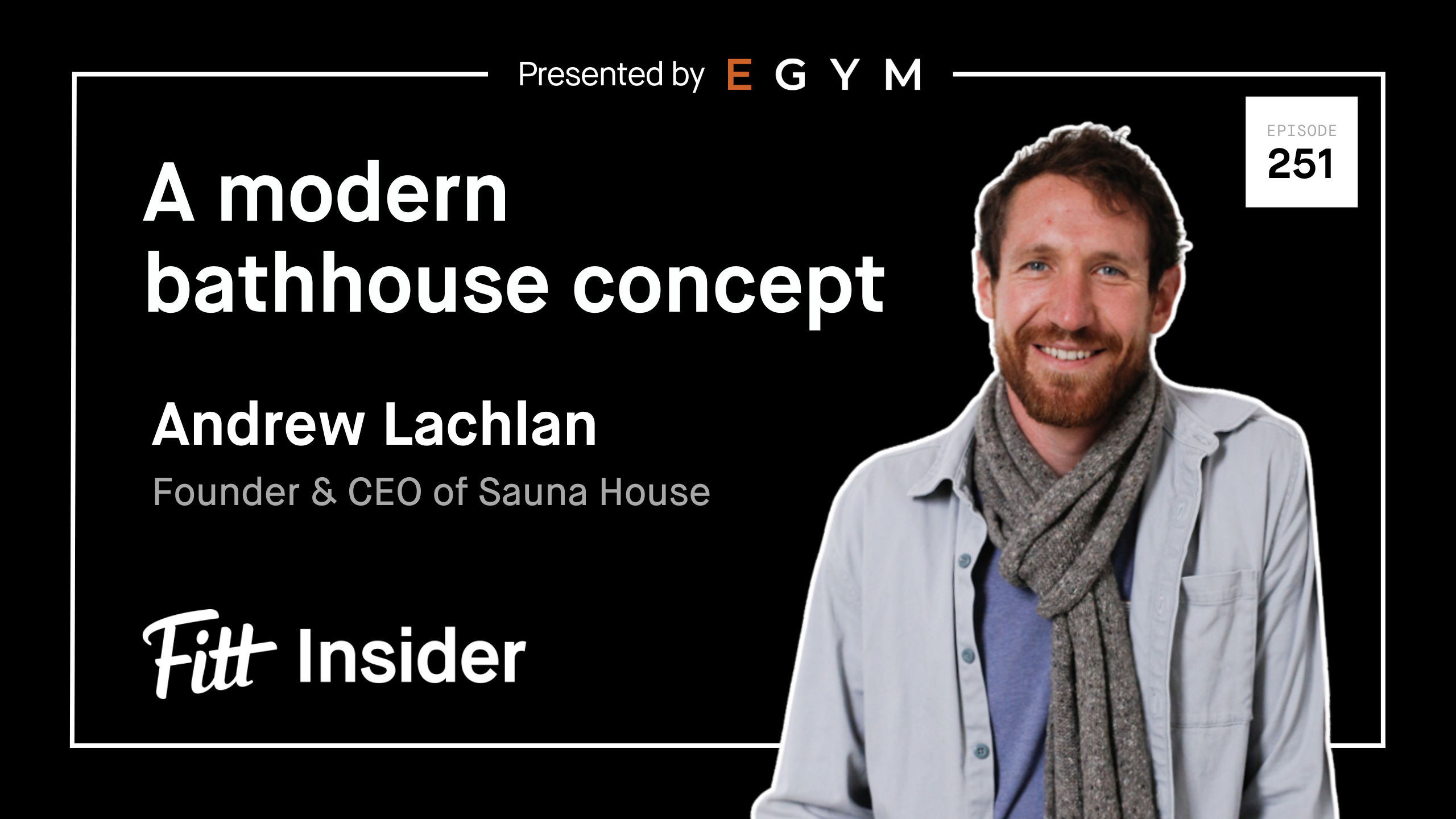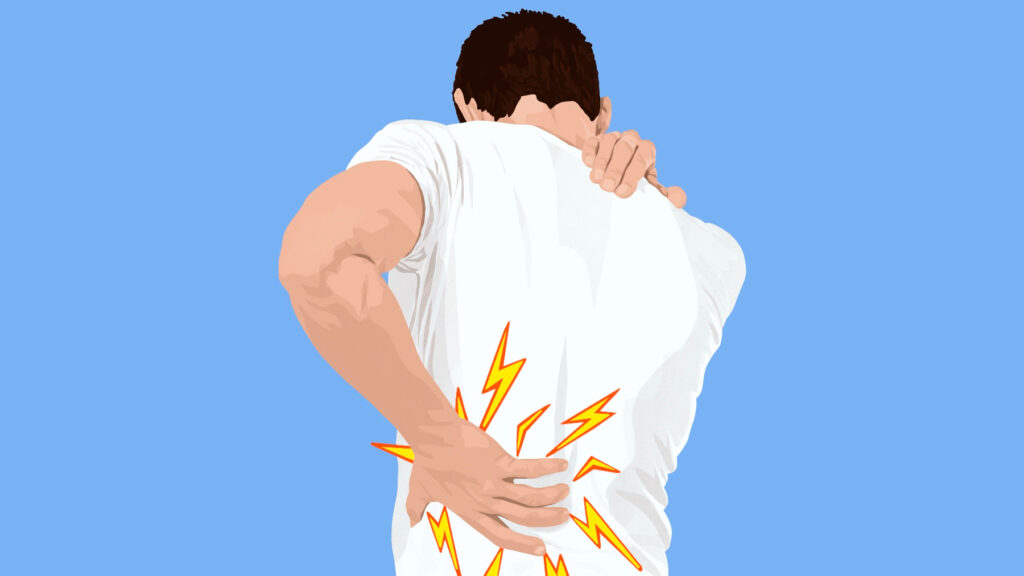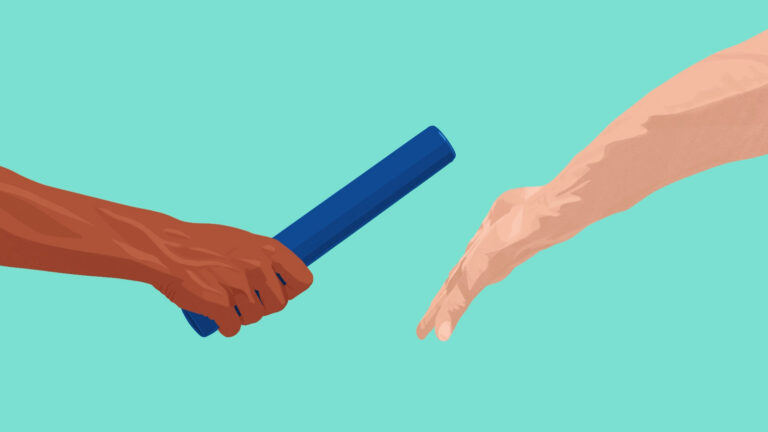
Unlock up to 40% savings for customers today.
Unwinding pain is complicated.
Hurting
At least one in five US adults and kids lives with chronic pain.
Spending $635B per year, treatment costs more than heart disease and cancer combined. Yet, it remains a scientific mystery, and 96% of med schools don’t mandate pain management training.
The Pain Cycle
America’s pain predicament is both cultural and cyclical.
In the 20th century, pain went from a spiritual undertaking to a pharmacologic problem. Rather than seeking meaning in suffering, people turned to pills for immediate relief.
Pushing OxyContin for profit, Purdue Pharma encouraged doctors to prescribe drugs for difficult-to-treat conditions — downplaying risk of addiction and ignoring root causes.
Thinking short-term, the system perpetuated a $1.5T opioid epidemic, with the US consuming 80% of the world’s opioid supply and 10M people misusing prescription painkillers in 2019.
Withdrawals. Weary of overprescribing but lacking alternatives, doctors have reverted to ignoring patients’ complaints, creating a separate but equal crisis.
- 84% of patients reported worse quality of life, and 42% considered suicide after prescriptions crackdowns.
- Women—who make up 70% of chronic pain patients—are more likely to be dismissed.
Notably, female physicians, empathic doctors, and MDs from the same cultural background as their patients produce better outcomes.
Making Amends
A biopsychosocial puzzle, pain requires a multifaceted approach.
While pills have their place, pain is the body talking. Masking symptoms could make things worse, as drugs become less effective and more taxing on organs over time.
Quick to operate yet slow to educate, the healthcare system misleads people into thinking expensive surgeries are the only solution, when lower-risk out-of-pocket options exist.
The mental. Following trauma, the brain and body subconsciously lock up — a phenomenon known as protective muscle guarding.
Researchers say convincing the body it’s safe is key to recovery, but traditional PT doesn’t address the emotional aspects of movement health.
Bridging the gap, Pain Reprocessing Therapy’s brain-retraining treatment cured 66% of chronic pain patients in a clinical trial, and RealizedCare’s VR rehab is rooted in neuroscience.
Helping re-regulate the nervous system, Muse and Hinge Health’s biofeedback devices teach patients to self-correct tension, while Kineon’s Calm+ stimulates the vagus nerve.
The physical. Building integrated care teams, Vori Health and Love.Life pair specialty doctors, PTs, RDs, and health coaches — with the latter housing complementary wellness treatments.
Believing women, Kaia Health and Origin repair the overlooked pelvic floor, while Pvolve offers low-impact programs specifically for back pain.
Getting hands-on, studios and gyms are rolling out stretching-as-a-service.
The assist. More consumers are turning to alternative therapies—from breathwork and acupuncture to craniosacral massage—in support of healing.
Replacing NSAIDs, WTHN’s muscle relaxer uses the herbal analgesic corydalis. Natural topicals, Giannis Antetokounmpo’s Flexpower and Serena Williams’ WILL PERFORM soothe soreness.
HigherDOSE’s infrared mats emit restorative electromagnetic waves, while Sidekick’s gua sha-inspired scraper and Aletha’s psoas-releasing hip hook expand sports med tools.
When all else fails, painkillers can preserve quality of life. On a mission to replace opioids, Vertex Pharmaceuticals and Latigo Biotherapeutics are developing non-addictive options.
Pushing boundaries, the NIH is exploring psychedelics as a solution. Still, any new meds will cost more than legacy drugs — making lobbying crucial.
Punchline: Permanent relief from chronic pain is possible, but holistic cures aren’t as profitable or fast-acting as opioids. Reversing pharma’s moral failure will require overhauling systemic incentives, rethinking pain’s purpose, and acknowledging the role of mindset and spirituality.
🎙 On the Podcast

Sauna House founder Andrew Lachlan discusses its modern bathhouse concept.
Andrew’s sobriety journey led him to discover the benefits of contrast therapy and ultimately launch Sauna House — reimagining ancient, science-backed remedies for today’s world.
We also cover: franchise-based expansion, creating tech-free spaces, and promoting community for well-being.
Listen to today’s episode here.
💸 David raises $10M for high-protein foods
RXBAR founder Peter Rahal is back in the bar business.
New flex. David, a startup developing high-protein, low-calorie, blood-sugar-friendly foods, raised $10M in a seed round.
CEO and co-founder Peter Rahal led the round, which included investments from Andrew Huberman and Peter Attia — with the latter serving as the brand’s chief science officer.
Perfect storm. Designing foods to “increase muscle and decrease fat,” David is capitalizing on the GLP-1 boom and consumers’ newfound glucose awareness.
Launching Sept. 16, its first product is a sugar-, gluten-, and artificial sweetener- and flavor-free bar claiming more protein per calorie than competitors.
Plotting a nutritious yet craveable portfolio, ice cream and salty snacks are in the pipeline.
Muscle up. Marketing around America’s most popular macro, brands like CHOMPS, Wilde, Kodiak, and Magic Spoon have managed to stand out in the crowded BFY CPG climate.
Looking ahead: Combining the playbook that led to RXBAR’s $600M exit with a science-backed co-sign, David is not-so-subtly selling itself as the snack of choice for health and longevity optimizers.
Presented by Truemed
💪 It Pays to be Healthy
Healthcare is broken. Truemed is fixing it.
Did you know? Consumers can use pre-tax HSA/FSA accounts to purchase qualifying items like fitness memberships, supplements, and exercise equipment.
But, the process is complicated for shoppers and brands alike… until now.
Aligning incentives. With a seamless payment integration, Truemed enables brands like CrossFit, 24 Hour Fitness, Hydrow, AG1, and Momentous to accept HSA/FSA funds at checkout.
Win-win. Customers save money and merchants benefit too — Truemed partners have seen a 22% lift in basket size, 16.4% increase in retention, and 10% sales boost.
Attn: health & wellness brands. Ready to enable HSA/FSA spending? Sign up now to get started.
📈 ClassPass owner Mindbody preps IPO
The fitness and wellness software provider hired Goldman Sachs to explore a public offering within “12–18 months.”
Tag team. Operating as Mindbody ClassPass since combining forces in 2021, the business is growing 20% YoY, expecting $500M in ’24 revenue.
Of note, Mindbody previously went public in 2015 before being taken private by Vista Equity Partners for $1.9B in 2019.
Book it. A competitive space, fitness & wellness SaaS companies are scaling up.
- Thoma Bravo is reportedly exploring a $3B sale of ABC Fitness — which owns coaching app Trainerize and studio management platform Glofox.
- Backed by Advent International, Xplor rolled up booking software of Mariana Tek, admin solutions zingfit and Triib, and PT app TrueCoach.
- Clubessential Holdings is forecasting $225M in revenue this year and could fetch $3B in a potential sale.
Meanwhile, Hapana recently added $17M and Gymdesk raised $32.5M as upstarts like Arketa and Momence give chase.
Takeaway: Operators want easy admin and packed classes. As software upgrades improve the experience for clients and their customers, brick-and-mortar fitness can only go up.
📰 News & Notes
- Wellness brands partner up, push lifestyles.
- Peloton inks content partnership with Fitbit.
- Reebok launches subscription-based fitness app.
- Bevel debuts app-based personal health companion.
- Plunge becomes exclusive cold plunge partner of SWTHZ.
- Spartan Race joins LEAD ONE as an official venture partner.
- SoWell launches supplement system for GLP-1 side effects.
- SoulCycle syncs with Strava, launches digital training group.
- alphabeats launches mental fitness initiative with USA Triathlon.
- Women’s wellness app Wild.AI integrates with Amazfit wearables.
- Headspace partners with Spring Health, Clue for fertility, cycle support.
- Nucleus Genomics unveils DNA-based IQ test. [Re-read: DNA Diagnostics]
- NYC longevity clinic Modern Age plots reopening under new management.
- Coya creates coaching programs inspired by Blue Zones and Special Forces.
- Building a health and wellness business? Check out the all-new Fitt, the definitive platform for industry leaders.
💰 Money Moves
US 🇺🇸 / Canada 🇨🇦
Metabolic health company Levels closed a $10M Series A extension.
Protein-focused food-tech startup David secured $10M in a Seed round.
Bill Ackman’s Pershing Square Capital Management acquired a stake in Nike for $229M.
Music-as-medicine platform Sensate raised $3.1M in an ongoing crowdfunding round.
Founders of supplements brand MaryRuth Organics re-acquired a majority stake from PE firm Butterfly.
TEAMology, an AI-enabled behavioral health platform for students, added $1.2M in a round led by VC 414.
Europe 🇪🇺
UK-based padel operator The Padel Club landed £1.5M ($1.9M) in growth funding from Praetura Ventures.
Norway’s SportAI secured $1.8M for its computer vision analytics platform for tennis and racquet sports.
Asia 🌏
UAE-based meal planning platform MealPlanet raised $6M in a seed round.
Australia 🇦🇺 / New Zealand 🇳🇿
Aussie healthy CPG company Forbidden Foods acquired oat milk maker Oat Milk Goodness.
Australian private health insurer Medibank acquired corporate wellness provider Pinnacle Health Group.
Bike Matrix, a NZ-based bike part matching platform, raised NZ$2M ($1.2M) in funding.
Today’s newsletter was brought to you by Anthony Vennare, Joe Vennare, Ryan Deer, and Jasmina Breen.






